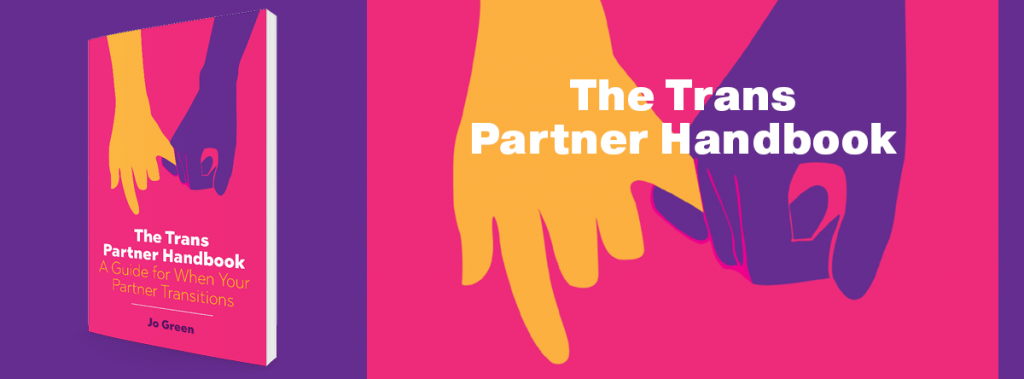You’re in a relationship and your partner tells you that they want to transition. How do you feel? You want to support your partner’s choice, but you’re worried it will change what you have with them. Is it fair to feel anxious and uncertain?
Realising the need for a support network for the partners of trans people, Jo Green set up Distinction Trans Partner Support Group. Here, Jo explains how you may feel as the partner of a trans person, and how important it is for trans partners to find their voice and be supported throughout their partner’s transition too.
Despite the common narratives in the media, most relationships survive one person transitioning. From working with partners for years, I’ve found that transition means that you need to start communicating much more. And it’s this communication that becomes the key. We went from the average couple to a cohesive unit. Watching my partner transition meant watching her grow into a much better, happier human being. Just being able to witness someone grow from someone quite isolated and unhappy, into someone who glows with confidence and joy is an honour. It’s given me the courage to explore my own gender issues and come out as non-binary. Trans people teach us that nothing is set in stone and there is no such thing as doing something just because you should. It’s all about doing what you feel is right for you, which for me is a wonderful approach to take.
But it’s not always easy. Being the partner of a trans person puts you in an unusual position where you’re straddling so many different spaces, without necessarily finding yourself at home in any of them. You’re a part of the trans community, but if you’re not trans yourself, it can sometimes feel like you don’t belong. You also might not feel like you belong in heterosexual or LGB spaces because your partner’s transition may make your sexuality complicated to explain.
Navigating spaces can also be complicated. When spaces are (rightly) exclusively for trans people, you can feel like the community you’re a part of doesn’t want you there. On the other hand, in predominantly cis spaces, you don’t feel like you fit in because you can’t be your authentic self because too often partners are faced with curiosity or disgust by people who don’t know what it’s like to be in a relationship with a trans person.
With the amount of vitriol there is towards trans people in the current political climate, it can sometimes feel like we need to hide the hard parts of the transition for fear of being seen as transphobic or our experiences used against us to further the cause of transphobes. This can make us feel incredibly isolated and ashamed if things are not completely rosy. This can put even more strain on the relationship. And it’s not all rosy, there is so much change going on that it’s difficult to sometimes be able to keep up with.
This is what can make the straddling of spaces so hard for partners. We love our trans people dearly and we would defend them at all costs, but it’s exactly this pure admiration and love for our partners which can also make spaces difficult to negotiate. This is what makes it so incredibly important for us, as partners, to find others like us. The Trans Partner Handbook: A Guide for When Your Partner Transitions is not just a guide for what to expect from various stages of the transition, it includes contributions from a range of different partners who each provide the insights of what they were going through at each stage of the transition. This way of connecting with other people who feel like we do is part of the process where you can learn to build your new narrative. You feel less isolated and you realise there are many people out there who have similar experiences. You aren’t alone. And although it’s sometimes hard, it’s also one of the most beautiful experiences you can go through.
Jo Green is the author of The Trans Partner Handbook and founder of the Distinction Trans Partner Support Group. Jo’s pronouns are they/them/their.
For more exclusive content and updates on new books, follow us on Facebook @JKPGender or join our mailing list.
